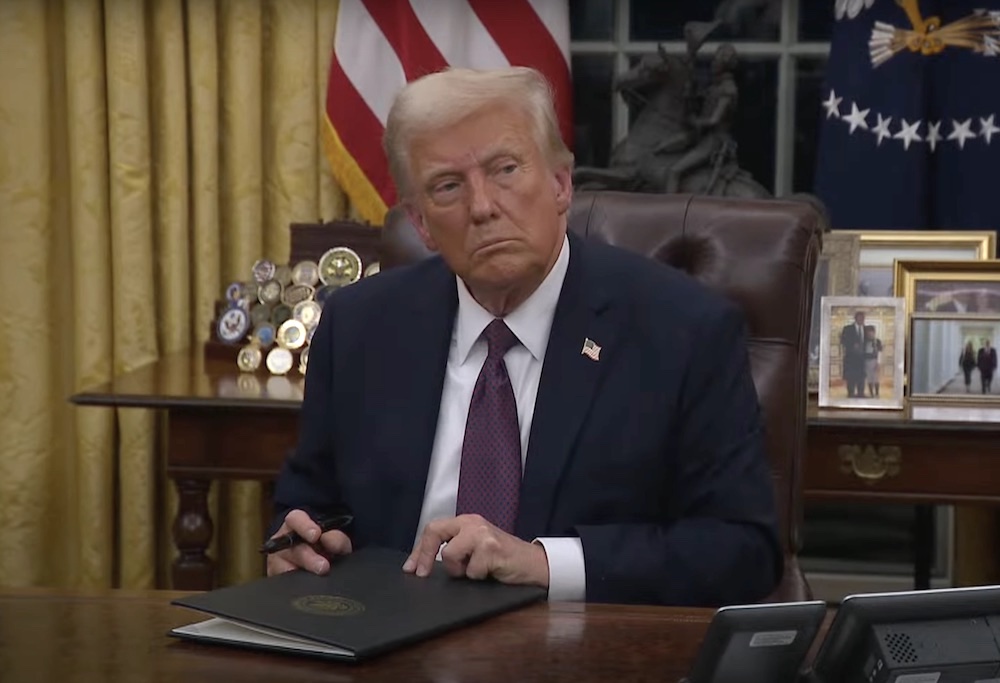
- Details
- By Chez Oxendine
- Policy and Law
The White House released President Trump’s fiscal year 2026 discretionary budget request earlier today, proposing significant reductions to several programs that serve tribal communities while maintaining or increasing funding for select programs.
The president’s $1.7 trillion budget blueprint calls for $163 billion in budget cuts across the entire federal government. The budget proposal is accompanied by several fact sheets on the White House website, including ones titled "Cuts to Woke Programs," "Ending Weaponization of the Federal Government," and "Revitalizing Federalism."
The Trump budget cuts funding for core tribal programs by nearly one-quarter, including a $617 million cut to Bureau of Indian Affairs programs that support tribal self-governance and communities. The proposal includes eliminating the Indian Guaranteed Loan program for tribal business development, which the White House calls “duplicative of several other programs” that tribal businesses can access.
Tribal law enforcement funding would see a $107 million reduction — a 20% cut — to “streamline the tribal law enforcement program to reduce redundancies and inefficiencies,” according to the budget document.
The Bureau of Indian Education construction program faces a $187 million cut, with the administration citing “poor management, cost overruns, and delays in school construction and repairs.” This would eliminate funding for construction of tribal schools, many of which are already in poor condition.
Overall, the Trump budget proposal slashes nearly $911 million, or 24%, from core tribal programs that fulfill the federal government’s trust and treaty responsibilities to tribal nations, including road maintenance, housing, and programs for children and families.
The proposal also calls for streamlining Native American funding for housing programs by “eliminating competitive grant programs and focusing available resources on the main formula grant to tribes.” Trump’s plan would eliminate the Native Hawaiian Housing Block Grant entirely.
Dave Castillo, CEO of Native Community Capital, said competitive grants represented a bulk of available funding for tribally designated housing entities (TDHEs), such as housing authorities or development corporations.
“The competitive grants were being used by the most progressive and capable TDHE's to leverage resources and rely less on federal grant funding which ultimately was the intent of the Native American Housing Assistance and Self Determination Act, given the Act’s regressive funding formula,” Castillo said. “It’s almost like the White House has no idea what it’s doing.”
Not all tribal funding faces cuts. The White House budget increases the Indian Reservation Drinking Water program by $27 million to a total of $31 million. While eliminating 16 EPA categorical grants for states, the proposal “maintains funding at 2025 enacted levels for tribes.”
Several other programs important to Indian Country face cuts. The Department of Energy Energy Efficiency and Renewable Energy program could be slashed by $2.5 billion, which could reduce funding for tribal renewable energy projects.
In addition, the Treasury’s CDFI Fund, which provides financial and technical support to Native community development financial institutions (CDFI), stands to lose all $291 million of its funding for discretionary awards. That represents most of the money available for awards, which distributed $324 million in fiscal 2024 — $51 million of which went to Native CDFIs, according to Native CDFI Network CEO Pete Upton.
While cutting traditional CDFI funding, the budget calls for a new $100 million Rural Financial Award Program, requiring 60% of CDFI loans go to rural areas. That program would utilize a portion of existing CDFI Fund money to provide “access to affordable financing and spur economic development in rural America,” according to the proposal.
Democrats were quick to criticize Trump’s proposals as attacks on working-class Americans in a bid to make room for planned tax cuts, according to statements released Friday.
“President Trump has made his priorities clear as day: he wants to outright defund programs that help working Americans while he shovels massive tax breaks at billionaires,” Sen. Patty Murray (D-Wash.), vice chair of the Senate Appropriations Committee, said in a statement. “This president wants to turn our country’s back on tribes—and let trash pile up at our national parks. Trump is even proposing to cut investments to prevent violent crime, go after drug traffickers, and tackle the opioids and mental health crises.”
The president’s budget serves as a blueprint for administration priorities and is not binding for funding legislation. Congress will work on the fiscal 2026 budget in the coming months.
Brian Edwards provided reporting.
